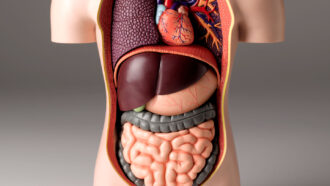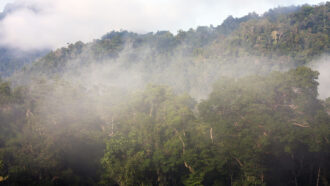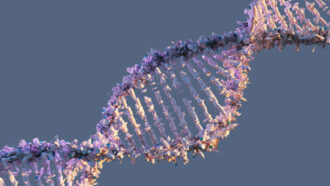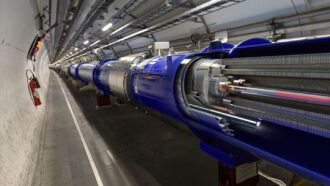Scientists Say
A weekly word defined, in a sentence and in context. Click here to find the alphabetized list.
-
 Health & Medicine
Health & MedicineScientists Say: Liver
This organ in the upper-right side of the belly does many essential jobs, such as cleaning blood and producing bile.
-

-
 Space
SpaceScientists Say: Telescope
Almost everything we know about the universe around us, we know thanks to telescopes.
-
 Life
LifeScientists Say: Fungi
Although some fungi can cause diseases, others can be eaten, used to make medicines or serve other useful functions.
-
 Physics
PhysicsScientists Say: Force
When an object experiences a force, its change in motion — or acceleration — depends on its mass.
-
 Tech
TechScientists Say: LED
LEDs, or light-emitting diodes, light up TV screens, traffic lights and many other devices used in daily life.
-
 Brain
BrainScientists Say: Cognition
Cognition is involved in all conscious mental activity, from thinking and reasoning to remembering.
-
 Earth
EarthScientists Say: Humidity
Feel sticky when you step outside on a summer day? Blame humidity — water in the air.
-
 Genetics
GeneticsScientists Say: DNA
Short for deoxyribonucleic acid, DNA is the molecule that determines how each living thing looks and works.
-
 Psychology
PsychologyScientists Say: Trauma
No one experiences trauma the same way. Its effects can be physical or emotional. Immediate or delayed. Brief or long-lasting.
-
 Chemistry
ChemistryScientists Say: Pigment
From fruits to fur to fine art, many materials get their colors from compounds called pigments.
-
 Physics
PhysicsScientists Say: Proton
These positively charged particles are important building blocks in atoms.